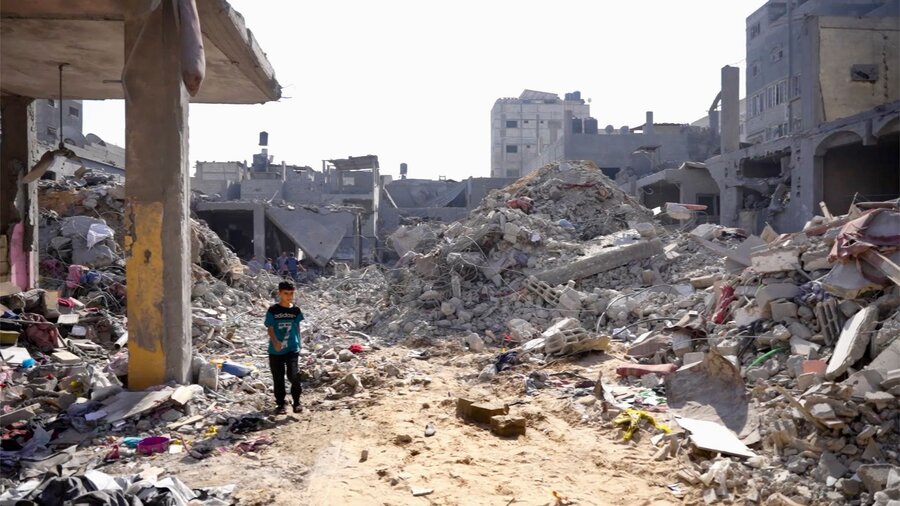Gaza Faces Widespread Hunger as Food Systems Collapse, Warns WFP

GAZA — With only 10% of necessary food supplies entering Gaza since the beginning of the conflict, the Strip now faces a massive food gap and widespread hunger as nearly the entire population is in desperate need of food assistance, the United Nations World Food Programme (WFP) warned today.
“Supplies of food and water are practically non-existent in Gaza and only a fraction of what is needed is arriving through the borders. With winter fast approaching, unsafe and overcrowded shelters and the lack of clean water, civilians are facing the immediate possibility of starvation,” said U.N. World Food Programme Executive Director Cindy McCain. “There is no way to meet current hunger needs with one operational border crossing. The only hope is opening another, safe passage for humanitarian access to bring lifesaving food into Gaza.”
Earlier this week, the U.N. World Food Programme confirmed the closure of the final bakery it partnered with due to lack of fuel. Fuel shortages have triggered a crippling halt in bread production across all 130 bakeries in Gaza. Bread, a staple food for people in Gaza, is scarce or non-existent.
The shortage of fuel is also crippling humanitarian distribution and operations, including the delivery of food assistance. Even as trucks arrived from Egypt and offloaded supplies in Gaza on Tuesday, they were unable to reach civilians in shelters because of insufficient fuel for distribution vehicles.
Of the 1,129 trucks that have entered Gaza since the opening of the Rafah border crossing on October 21, only 447 were carrying food supplies. While the U.N. World Food Programme welcomes the increase in the number of trucks crossing into Gaza, the volume remains woefully inadequate: The food that has entered Gaza is only enough to meet 7% of the people’s daily minimum caloric needs.
The food infrastructure in Gaza is no longer functional. Only 25% of shops contracted by the U.N. World Food Programme remain open and others have run out essential food items. Local markets have shut down completely. The small quantities of food that can be found are being sold at alarmingly inflated prices and are of little use without the ability to cook, forcing some to survive on one meal a day. For the lucky, that includes more than solely canned food, though some people have resorted to consuming raw onions and uncooked eggplants.
“The collapse of food supply chains is a catastrophic turning point in an already dire situation, where people have been stripped of basic necessities”, said Samer Abdeljaber, WFP representative and country director. “Without access to fuel, our ability to provide bread or transport food to those in need has been severely compromised, essentially bringing life in Gaza to a standstill. People are going hungry.”
Since last month, the U.N. World Food Programme has provided emergency food assistance to over 700,000 displaced people in Gaza and plans to scale up food assistance to reach over 1 million people in the next few weeks. However, this can only happen with increased, sustained supply corridors into Gaza, the ability to rotate staff in and out with safe humanitarian access, and additional support from donors.
# # #
The United Nations World Food Programme is the 2020 Nobel Peace Prize Laureate and the world’s leading humanitarian organization, saving lives in emergencies and using food assistance to build a pathway to peace, stability and prosperity for people recovering from conflict, disasters and the impact of climate change.
Follow us on Twitter @WFPUSA, @wfp_media and @wfp_mena




